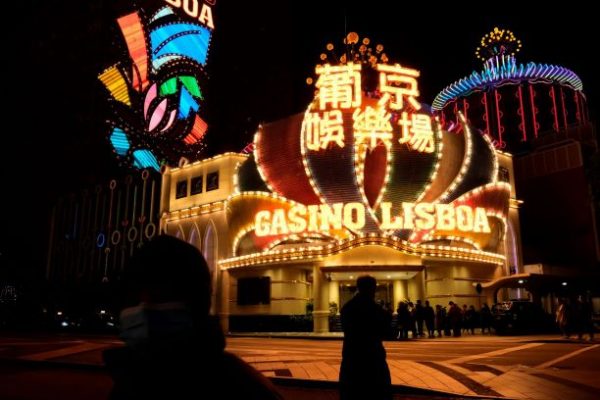The Macau government’s control and suspension of visitor flows with the outside world — especially from mainland China and Hong Kong, which accounted for 89.5 per cent of visitor arrivals in 2019 — led to a meltdown of the city’s tourism. Gross gaming revenue fell by 60 and 95.5 per cent in the first and second quarters this year, respectively. Macau’s real GDP contracted an unprecedented 48.7 and 67.8 per cent over the two periods.
Macau’s government introduced a series of uneasy but pragmatic measures to insulate the tiny yet densely populated city from COVID-19 transmission originating from large volumes of tourism. The measures included a suspension of tourists visiting the city and an agreement with casino operators to temporarily shut down business for 15 days in February.
Macau’s government also required residents to follow social distancing protocols, compulsory mask wearing in public areas and mandated a 14-day quarantine rule in designated facilities for anyone with legitimate reasons to enter. The city’s tourism sector has held still for over half the year.
Thanks to the government’s substantial fiscal power — a reserve of some MOP 580 billion (US$72 billion) had been recorded at the end of 2019 — gathered through pre-COVID-19 gaming tax revenue, a suite of policies were introduced simultaneously to alleviate the economic shock. Casino operators also chipped in funding to safeguard local employment. Over MOP 50 billion (US$6.22 billion) of government spending was directed to various social welfare and business subsidy programs. This cushioned the economic blow to businesses at the height of the initial impact.
Macau successfully demonstrated that it is one of the world’s safest cities. To date, it has recorded only 44 imported and two local cases of COVID-19, and zero deaths. Although policies created some difficulties for businesses, it set up a robust framework with commitments from the local and neighbouring communities to float the casino, tourism and related sectors in a COVID-19 world.
After the Chinese government’s rigorous pandemic measures were imposed, it became apparent that COVID-19 was largely under control on the mainland from May. Still, uncertainties around asymptomatic COVID-19 cases meant that the government held back on a return to larger physical gatherings and tourist flows between Macau and the mainland.
Travel was initially opened only between Macau and neighbouring mainland city Zhuhai. The travel bubble was then extended to include Guangdong province — typically accounting for over 40 per cent of Macao’s total visitor arrivals — from the end of August.
But to minimise the possibility of a return of COVID-19, domestic tourists are subject to an electronic health code mutual recognition system between Macau and Guangdong. Under this system, each visitor must obtain a certificate, valid for seven days, indicating negative COVID-19 status and present it upon entry into Macau. Evidently, social safety is front of mind for Macau’s public as a prerequisite for reopening to tourism even domestically. With this policy approach pre-COVID-19 domestic tourism levels may take months or even over a year to return.
Considering that Macau’s non-gaming local tourism-related sectors heavily rely on tourist spending, newly designed government-subsidised domestic tourism packages are being promoted. These new packages emphasise Macau’s unique historical and cultural resources to market the city as a tourism destination. But the local government is still being careful with a stepped strategy in its restrictions with mainland China and the world.
Although it is adopting a gradual and cautious approach to re-float Macau’s tourism industry, there is a trade-off between the economic costs and social benefits of sustained pared-down economic activity. While there may be calls for fewer restrictions and a swifter return of tourists, releasing the fiscal burden of the government and reducing the losses of local firms, the downsides associated with the possible re-emergence of COVID-19 will destroy the economy and undermine social stability.
The government’s decision to employ prudent health policies and strong fiscal support to rejuvenate the economy is working effectively for the city. Although the path to full recovery is subject to uncertainty, Macau’s tourism sector is ready to rebound thanks to the strong health and economic policy settings in place. If a vaccine is successfully developed and widely deployed, Macau will bounce back into its position as the world’s tourism and entertainment hub. Until then, Macau is proceeding with its guard up.
Ricardo C S Siu is Associate Professor of Business Economics and Director of the Centre for Tourism and Integrated Resort Studies at the Department of Finance and Business Economics, Faculty of Business Administration, University of Macau.
This article is part of an EAF special feature series on the novel coronavirus crisis and its impact.

